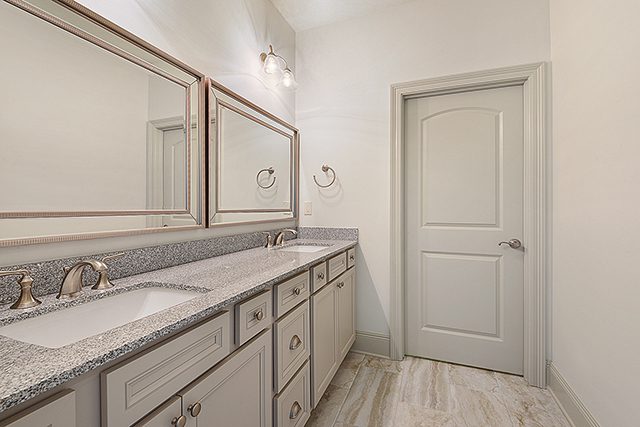Important Home Buyer Walk Through Information
When most people think of a walk-through, they think of buying a new home and walking through with a builder to go over the punchlist of items which need to be completed, tweaked, or fixed before closing on the home. However, there is another type of walk through that can be done by you as the home buyer which will help you decide if you even want to put an offer in on a home. And, you don’t have to be an expert at construction to evaluate the merits of the home you are buying – you can just use the common sense tips below and all of your senses!
1. The first thing you will want to notice about a home for sale is how it smells. Some homeowners are smart and will install air fresheners which emit a smell throughout the home, but pay attention to any odors which seem out of place. This could indicate a long term problem like mildew or decay.
2. Check out the paint job. See how well the paint job has aged and how well it has withstood the test of time. If it is peeling or chipping, that might mean that there is a problem with moisture or sagging in the construction.
3. Popcorn ceilings COULD be a warning sign, but not necessarily. Depending on the age of the home, you might want to avoid older homes which have popcorn ceilings because they were originally applied with asbestos material. Since asbestos is a cancer-causing agent, you will not want to purchase an old house with popcorn ceilings without either absolutely loving the house or having that checked out.
4. Look around at all of the walls, ceilings, and baseboards for the presence of water stains to make sure that there are no leaks in the roof or the exterior siding.
5. How well is the home maintenanced? This can be a big indicator as to how well the home was taken care of by the current owner. Just like you want to buy a car with one owner (who took good care of the car and had it  maintenanced often), the same goes for a house. If the home has long term cleaning problems or simple problems were not repaired before the home was put on the market, the more likely it is that the home was not maintenanced, which could lead to problems for you as the buyer further down the road.
maintenanced often), the same goes for a house. If the home has long term cleaning problems or simple problems were not repaired before the home was put on the market, the more likely it is that the home was not maintenanced, which could lead to problems for you as the buyer further down the road.
6. Depending on the part of the country in which you live, as well as the season of the year, keep a lookout for bugs. In Louisiana, many houses, no matter how well sealed and insulated, may have bugs present in the house, just because of the climate and the weather here. However, if you can tell there are bug “droppings” and spider webs everywhere, there may be more “leaks” in the actual structure of the home which indicate an energy efficiency problem.
7. Pay attention to the type of floors in the house. Even if you fall in love with the house itself, be mindful of the condition of the floors as they may need to be repaired or replaced in the future. You will want to be ready and realistic about the cost.
8. Renovations can be a good thing or a bad thing for home buyers. Properly completed renovations in order to sell the home like new carpeting, an excellent paint job, exterior landscaping, and replacing deck boards or trim can be a good thing. If the homeowner offers the information about renovations, question that information closely to make sure that it was done correctly, not last minute, and is now completed. Poorly done construction renovations will not last, and unfinished renovations should be required by your contract to be finished before you close on your home.

